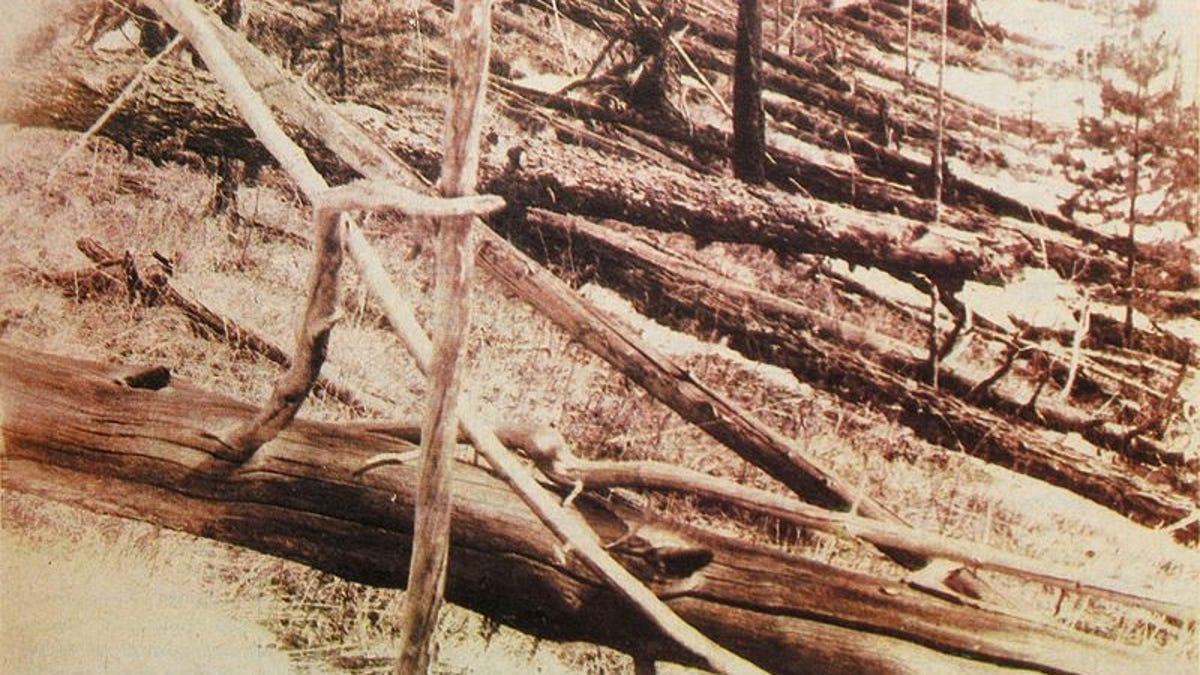Remote Russian lake deepens old mystery and ruins 'The X-Files'
Many say it was a meteor blast that flattened a Siberian forest and left a large impact crater when the "Tunguska Event" happened over 100 years ago. New research debunks part of the story.
On a summer morning in 1908, one of the largest explosions in human history took place in Russia. The cause of the blast has remained a mystery of mythic proportions, even working its way into "The X-Files."
Now, newly published research seems to debunk part of the popular chronology of what happened that day, dismantling part of the real-world backstory for the iconic sci-fi series at the same time.
Fortunately, the so-called "Tunguska Event" hit one of the most remote regions on the planet and no humans were killed, but that also means few humans were around to figure out what the heck it was that flattened 770 square miles of Siberian forest that day.
While the world was largely occupied with a recent revolution on the other side of Russia and turmoil elsewhere at the time, "Tunguska" went on to be the subject of over 1,000 scholarly papers. One of the leading theories has been that it was caused by a meteorite impact, a hypothesis that old-school nerds will recognize as playing a pivotal role in a double episode of the "X-Files" titled "Tunguska / Terma."
Twenty-year-old spoiler alert! The episodes involve Agent Fox Mulder speculating that fossilized alien bacteria from a meteorite fragment might be tied to the Tunguska event as he hikes through the same forest that was flattened decades earlier (and just before he's captured and thrown into the area's local gulag).
In the real world, the popular explanation is that a powerful burst of air caused by a large meteor colliding with the atmosphere flattened the forest and that nearby Lake Cheko was formed by the impact crater of the resulting meteorite.
But last year, Russian researchers took samples of the sediment from the bottom of the deepest part of the lake and found they were at least 280 years old, easily predating the Tunguska Event and casting doubt on the notion the lake could have been formed by a meteorite impact that day. The findings were reported this week by the Russian Geographical Society.
The elimination of Lake Cheko as the point of impact would deepen the Tunguska mystery. Is it possible a meteor large enough to create an air burst so powerful it could have flattened a major city would have fully disintegrated in the atmosphere?
A less powerful burst blew out windows in the Russian city of Chelyabinsk in 2013 when a bolide collided with the atmosphere and the resulting meteorite came to rest at the bottom of a nearby lake. Yet the far more damaging Tunguska Event now seems to have left no obvious impact crater.
This means it may be worth giving further consideration to other, more far-out theories -- like the notion that natural gas leaking from the Earth's crust and then ignited by lightning may be to blame.
Perhaps we'll never know what really happened that day in Siberia in 1908, that is unless someone can finally get the "Cigarette Smoking Man" to spill all his secrets.
Crowd Control: A crowdsourced science fiction novel written by CNET readers. Read it here.
Tech Enabled: CNET chronicles tech's role in providing new kinds of accessibility. Check it out here.


